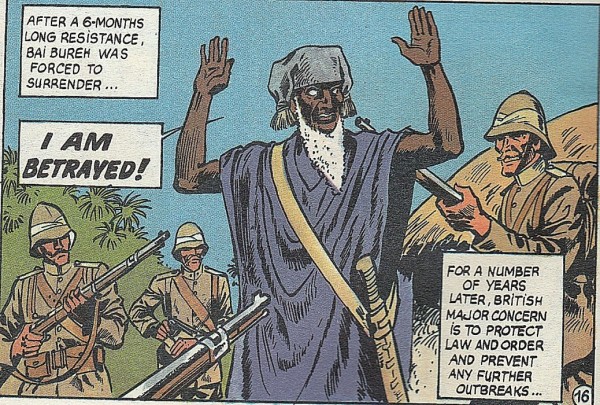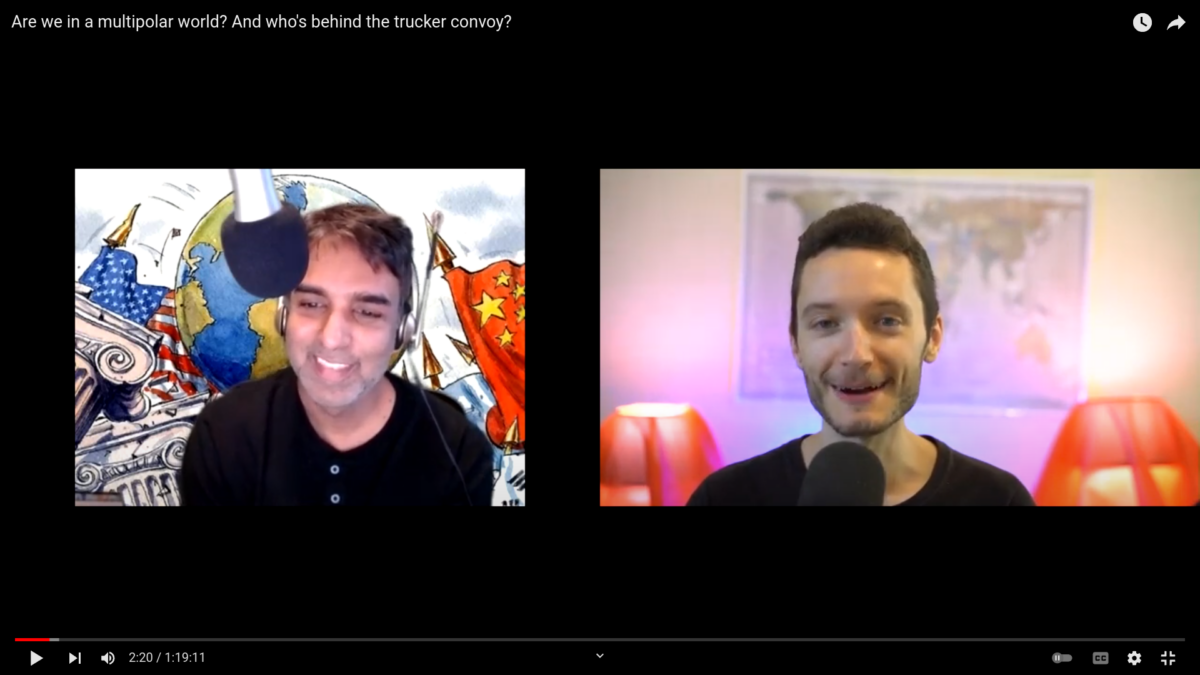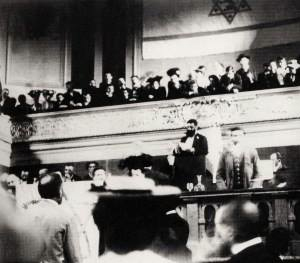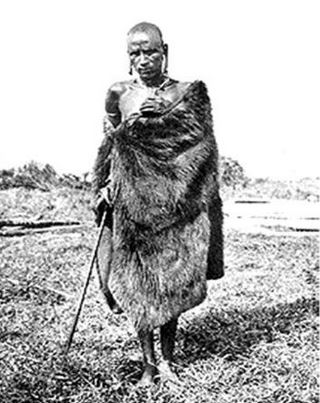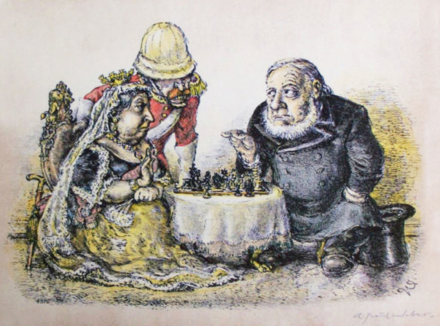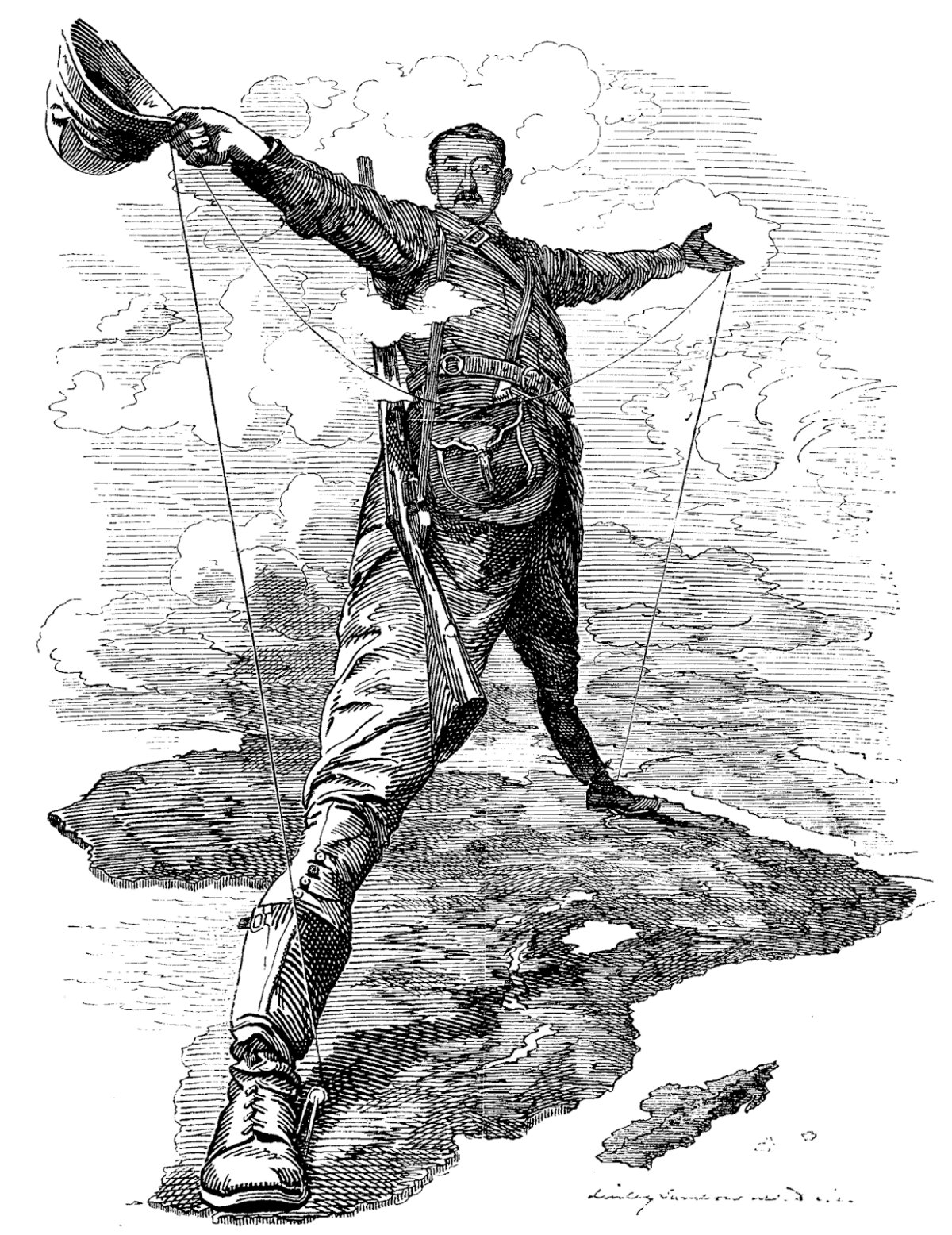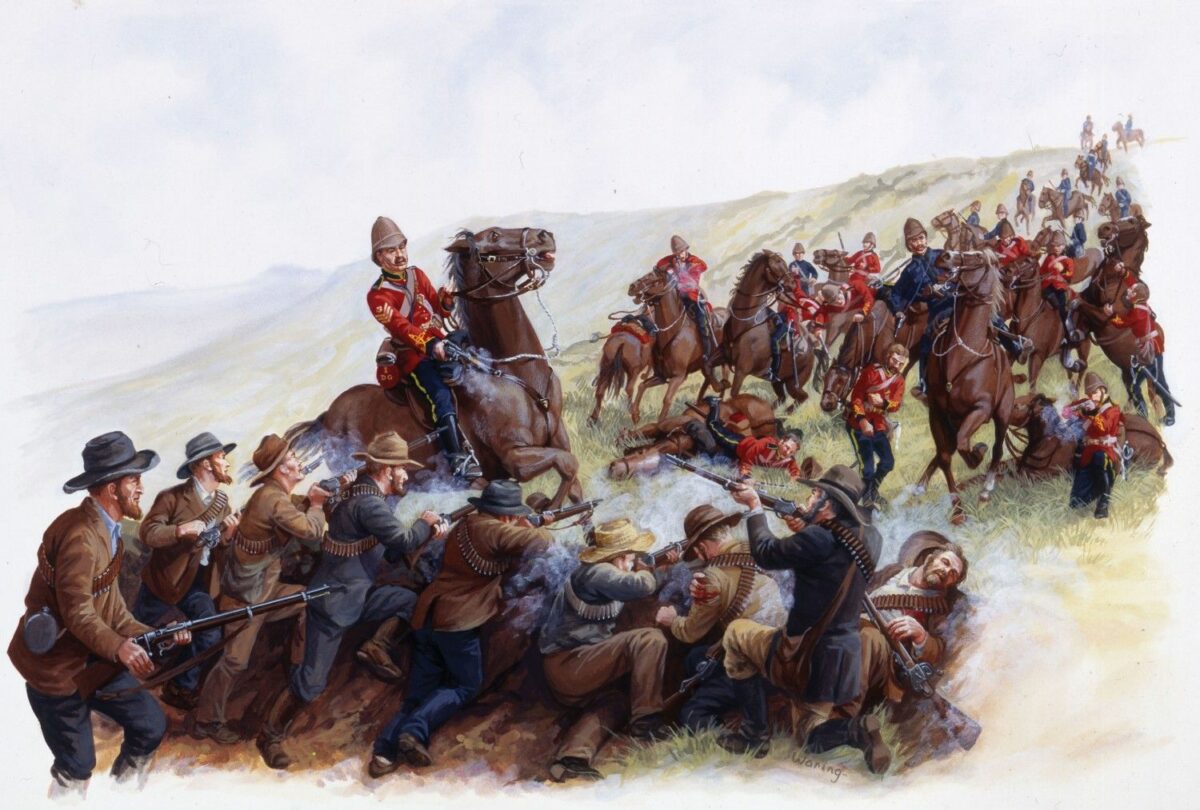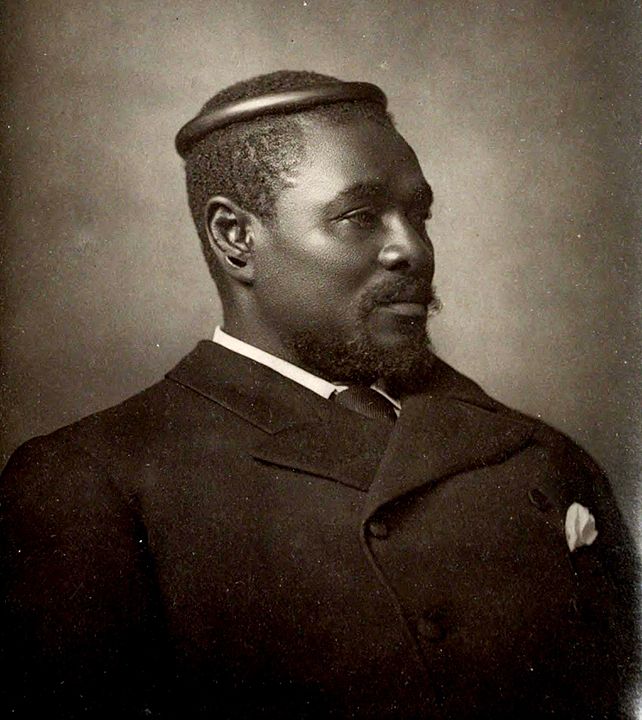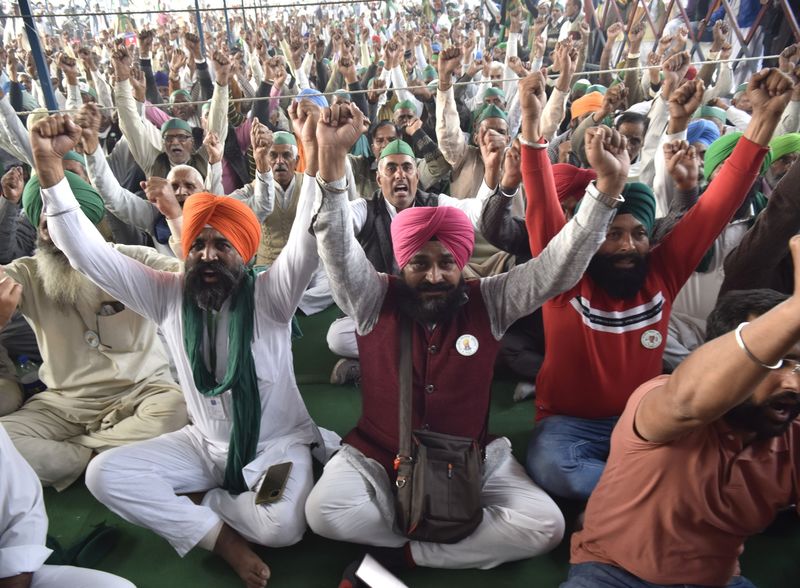We start this episode with a few minutes of reading reviews – from fans and not-fans! Perhaps this will inspire you to review us too. Then we’re on to the British Scrambling for West Africa. Some of the Africans who fought back, of course, notably Bai Bureh and Yaa Asentewaa. Lord Lugard’s ideas of the Dual Mandate and the debate on indirect rule. The trickery and wars that led to the consolidation of Nigeria into a British colony. Some tales near the end of the incredible missing imperial records — too many to be coincidental.
Category: Anti-Empire Project Podcast
The Anti-Empire Project podcast (formerly the Ossington Circle)
AER 102: Are we in a multipolar world? And the trucker convoy, with Ben Norton
Ben Norton of the new site multipolarista.com joins me to talk about a wide range of anti-imperialist topics, from Xi Jinping and Vladimir Putin to Ortega and Maduro. We end up trying to figure out “patriotic socialism”, support for the “trucker convoy” (which is opposed by most truckers and which has very few truckers). Towards the end there’s a detailed theoretical discussion of how differences and splits occur not just among socialists but also among right-wing conservatives, and what the class basis for these kinds of splits might be. Are we in a multipolar world?
Scramble for Africa 11: Theodore Herzl, the Uganda Plan, and the Zionist Scramble for East Africa
At the first Zionist Congress in 1897, delegates agreed to pursue the colonization of Palestine. But at the Sixth Zionist Congress in 1903, Theodor Herzl presented a proposal for a colony in East Africa – he presented it as a mere stepping stone to Zion, but it caused bitter divisions among the delegates. We tell the little-known story of the British negotiations with the Zionist movement for a colony in Africa, centering on the founder himself, Theodore Herzl (not to be confused with a contemporary Viennese colonialist utopian named Theodore Hertzka, whose novel also became the basis for a failed African colonization scheme…). Our last stop in the British Scramble for East Africa (West Africa’s next).
Scramble for Africa 10: Saving souls and stealing cattle – the British take Uganda and Kenya
From the Imperial British East Africa Company to the British East Africa Protectorate, we trace the missionary mischief that led to the British taking Uganda and the many wars (called “expeditions”) that led to the British taking Kenya. In the process you’ll meet Mwanga of Buganda, Kabarega of Bunyoro, and the treacherously assassinated Arap Samoei of the Nandi.
Scramble for Africa 9e: South Africa pt5 – The Boer War 1899-1902
Our fifth and concluding episode on the Scramble in South Africa is on the (Second) Boer War from 1899-1902. We talk about how it started and why, the military details, the concentration camps, the struggle to keep it a “White Man’s War” for fear of a Lincoln showing up, and the implications (it’s clear who won the war, but who won the peace?) As for who lost the peace, the answer is clear – the Africans. How it all happened, in this episode.
AER 101: China and Imperialist Media Strategies with Vijay Prashad
Sooner or later every anti-imperialist is smeared as a “tankie” and this week was Vijay’s turn. First his views were falsified, then he used the word “modernization” in a tweet! So, in this interview, we take a deep dive into debates about “modernization”. Repudiating liberal and colonizer’s attacks on Indigenous societies (which they falsely claim to do in the name of modernization), we talk about nationalist and anticolonial projects that challenge local oppression and feudalism. Are these “modernization”? We conclude with a discussion of the whole strategy of smearing people as “tankies” and why these articles seem to come out every few months (hint: it’s to drive anti-imperialists out of the western left…)
Scramble for Africa 9d: South Africa pt4 – The Hubris of Cecil Rhodes
The Scramble for Africa cannot be encapsulated in the career of any single imperialist, but if it could, that imperialist would be Cecil Rhodes. From the Rhodes Scholarship to the falling statues, Rhodes’s impact is still ubiquitous today. We look at the words and deeds of the exemplar of the Scramble, from his beginnings to the Jameson Raid which made the Boer War inevitable.
Scramble for Africa 9c: South Africa pt3 – The Boers before the War
Continuing the history of the Scramble for South Africa, we talk about the Boers, the Dutch settlers and their attacks on the Africans and then on the British conflicts with them, up to the discovery of diamonds at Kimberley that might just be the event that set off the entire scramble. South Africa’s unbelievable mineral wealth and what it did to British imperial minds; who’s responsible for apartheid; and more, in this episode.
Scramble for Africa 9b: South Africa pt2 – The Zulus from Shaka to Cetshwayo
Part 2 of our series on the Scramble in South Africa takes us back to the Zulu modernizer, Shaka, in the early 19th century, all the way to the end of the Anglo-Zulu War between the British imperialists and the Zulus ruled by Cetshwayo. The land theft and swindling you’ve come to expect from the Scramble for Africa combine here with some sharpening of white supremacist ideology, a lot of which it turns out was developed specifically to find a theory of how and why the British Empire should settle and rule South Africa.
AEP 100: Debriefing the Indian Farmers’ Victory with Navyug Gill
I’m joined by Navyug Gill from William Paterson University to talk about the historic victory of the Indian Farmers who, after demonstrating for a whole year at the cost of 750 lives, succeeded in forcing the repeal of three laws that would have immiserated agriculture in India, done away with the government procurement system, and subjected the entire agricultural system to new levels of instability and volatility. Instead, the farmers stopped the seemingly unstoppable Modi juggernaut. We talk about how they did it and what might come next.

